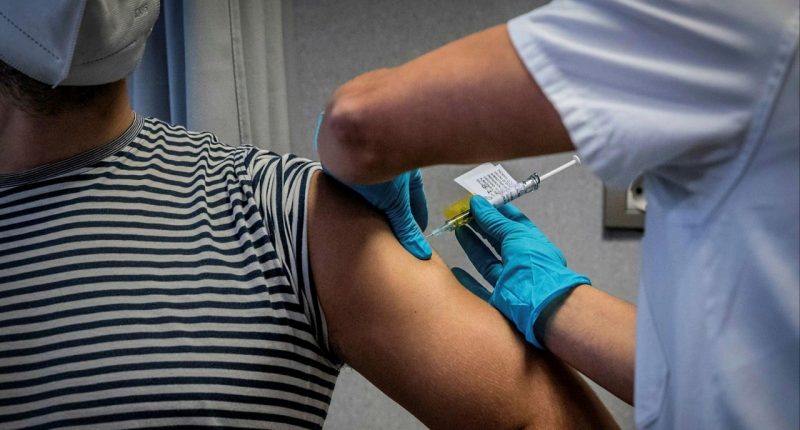- The European Medicines Agency (EMA) has made a link between unusual blood clots and the Johnson & Johnson COVID-19 vaccine
- Despite this, however, the regulator said the benefits of the vaccine still outweigh the risk of the “very rare” side effect
- The statement comes after the European Union drug regulator investigated eight reported cases of blood clots out of more than seven million jabs
- The clots were found to be possibly linked to the jab, occurring mostly in women under 60 in unusual places like the brain, abdomen and arteries
- The EMA said the vaccine is still recommended, but a warning should be placed on the label to inform people of the rare side effect
- Nevertheless, given the rareness of the condition, Johnson & Johnson said it will resume shipping the vaccine to the E.U., Norway and Iceland
- Australia confirmed last week it would not purchase any doses of the Johnson & Johson jab as part of its vaccine roll-out plan
The European Medicines Agency (EMA) has made a link between unusual blood clots and the Johnson & Johnson COVID-19 vaccine, though the regulator said the benefits of the vaccine still outweigh the risk of the “very rare” side effect.
In a statement this week, the European Union’s drug regulator confirmed the “possible link” to the jab and very rare cases of blood clots with low blood platelets.
The EMA concluded that while the vaccine should still be administered and taken when possible, a warning should be put on the vaccine’s label listing the blood clots as a side effect.
The report comes after the E.U. paused its rollout of the Johnson & Johnson jab following reports of blood clots in some recipients.
The blood clots have only been recorded in a handful of people among millions of inoculations.
“At its meeting of 20 April 2021, EMA’s safety committee concluded that a warning about unusual blood clots with low blood platelets should be added to the product information for COVID-19 Vaccine Janssen,” the EMA said in a statement. Janssen is the market name for the Johnson & Johnson vaccine.
“In reaching its conclusion, the Committee took into consideration all currently available evidence including eight reports from the United States of serious cases of unusual blood clots associated with low levels of blood platelets, one of which had a fatal outcome,” the drug regulator said.
“As of April 13, 2021, over seven million people had received Janssen’s vaccine in the United States.”
In any case, the EMA advised that the risk of blood clots is extremely low, and the benefits of the jab outweigh the risk of side effects.
Roll-out to resume
The blood clots were similar to reports from the AstraZeneca vaccine, though based on the evidence currently available, the EMA said specific risk factors have not been confirmed.
All reported cases of blood clots linked to the Johnson & Johnson vaccine occurred in people under 60 within three weeks after receiving their jab. The majority of the reports were from women.
The clots occur at unusual sites like veins in the brain, the abdomen and arteries, and come with low levels of blood platelets and sometimes bleeding.
Nevertheless, given the rareness of the condition, Johnson & Johnson said it will resume shipping the vaccine to the E.U., Norway and Iceland.
“The safety and well-being of the people who use our products is our number one priority,” Vice-Chairman of the Executive Committee and Chief Scientific Officer at Johnson & Johnson Paul Stoffels said.
“We appreciate the rigorous review of the PRAC and share the goal of raising awareness of the signs and symptoms of this very rare event to ensure the correct diagnosis and appropriate treatment.”
The Morrison government confirmed last week it would not be buying any doses of the Johnson & Johnson vaccine for Australia’s vaccine rollout due to similarities to the AstraZeneca jab, which is a core part of the government’s vaccine roll-out strategy.







